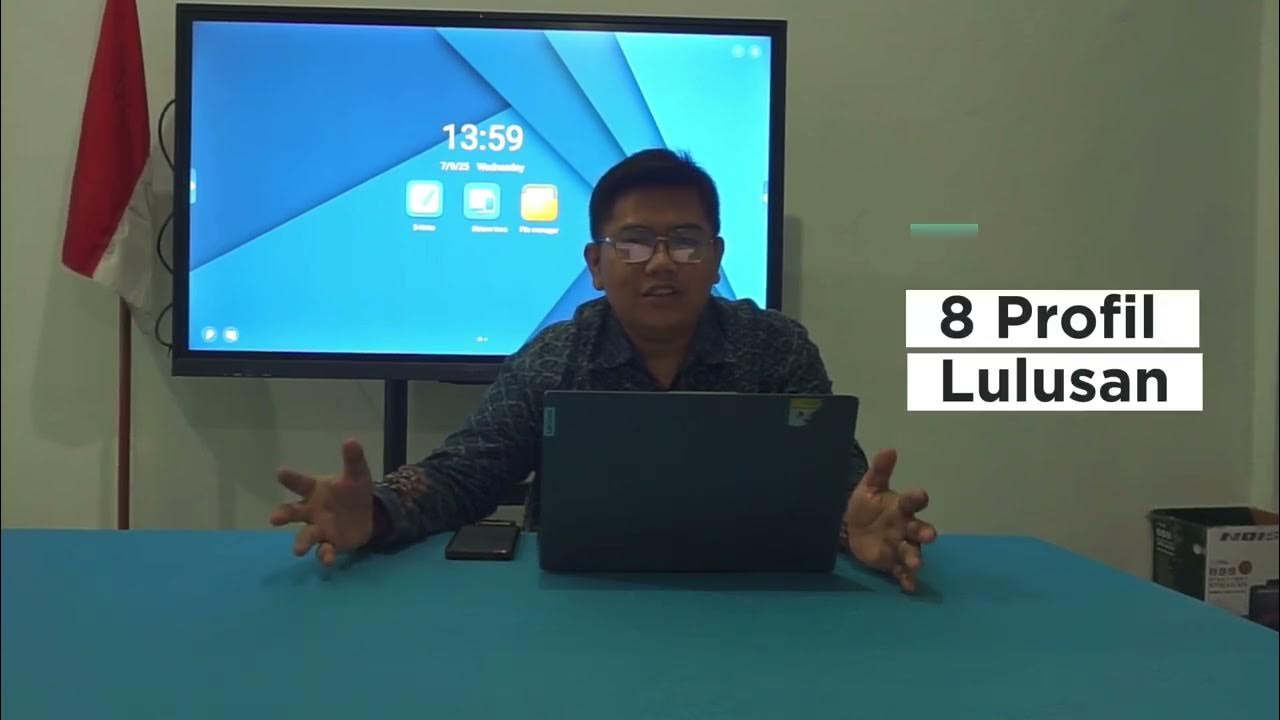PANDUAN PEMILIHAN MATA PELAJARAN JENJANG SMA/MA/SMK PADA KURIKULUM MERDEKA
Summary
TLDRIn this video, the speaker provides guidance on helping students select elective subjects as they move from class 10 to class 11 under the Merdeka Curriculum. The video emphasizes the importance of aligning subject choices with students' interests, talents, and future career goals. It discusses the legal framework and curriculum structure, highlighting both compulsory and elective subjects. The speaker offers practical examples for different career paths such as engineering, medicine, and journalism, and explains how schools can tailor subject offerings based on available resources and student needs. The aim is to equip educators and parents with the tools to guide students effectively.
Takeaways
- 😀 Students in grade 10 transitioning to grade 11 will select elective subjects based on their interests, talents, and abilities.
- 😀 It is important to consider the students' future educational and career plans when guiding them in choosing subjects.
- 😀 Parental involvement, along with input from teachers and counselors, is crucial for understanding students' interests and talents.
- 😀 Psychometric tests, such as IQ and scholastic aptitude tests, can help provide insight into students' abilities.
- 😀 According to experts like Herl, interest serves as a key motivator for students to pursue specific subjects or careers.
- 😀 The 'Merdeka Curriculum' offers students the opportunity to choose subjects that support their future career goals.
- 😀 Talents, whether in academic or non-academic fields (like art or sports), can influence subject selection.
- 😀 Students can choose from a range of elective subjects, with at least seven available options at each school.
- 😀 Schools are expected to have the resources to offer a minimum of seven elective subjects, but they may offer more.
- 😀 Specific subjects can be recommended based on students' career interests, such as engineering, medicine, or journalism.
- 😀 Schools may create specialized classes based on students' career interests, offering tailored curriculums, such as engineering or medical tracks.
Q & A
What is the primary purpose of the subject selection process discussed in the script?
-The primary purpose is to help students select elective subjects in 11th grade based on their interests, talents, and career aspirations. This decision influences their educational and professional futures.
What are the legal foundations guiding the subject selection process?
-The process is guided by Ministerial Decrees, regulations from the Ministry of Education, Research, and Technology, and additional guidance documents available on official websites.
Why is it important for parents and teachers to collaborate during the subject selection process?
-Collaboration is important to ensure that students receive guidance that considers their interests, abilities, and potential career paths. This partnership helps create a supportive environment for informed decision-making.
How does the selection of subjects relate to students' future career plans?
-The subjects students choose in 11th grade can significantly impact their ability to pursue certain careers or higher education programs. For example, subjects like Math, Physics, and Chemistry are essential for students aiming to study engineering or medicine.
What role does psychological testing play in the subject selection process?
-Psychological testing helps assess a student's talents and abilities, identifying their strengths in areas like academic skills or creative arts. This data guides educators in recommending appropriate subjects for the student.
What are the general subjects that every student must study?
-Every student must study common subjects such as Religion, Pancasila, Indonesian Language, Mathematics, History, English, Arts, and Sports. These are consistent across all students.
How many elective subjects must be available at each educational institution?
-Each educational institution must offer a minimum of seven elective subjects for students to choose from. Schools may offer more than seven depending on their resources.
Can you give an example of how subject selection would work for a student interested in mining engineering?
-A student interested in mining engineering, like Andre in the example, should select subjects such as Mathematics, Physics, Chemistry, and Geography. These subjects align with the skills needed for the field.
How can schools cater to students with different career interests through their subject offerings?
-Schools can offer specialized tracks or classes that focus on different career paths, such as classes for students interested in medicine, engineering, or journalism. These tracks would provide tailored elective subjects like Biology, Physics, or Economics.
What is the significance of the example structure for the 11th-grade curriculum at SMA Ma 2 Surabaya?
-The example structure shows how a school can organize its curriculum to accommodate students' career paths, with specialized tracks for fields like engineering and medicine, ensuring students are prepared with the necessary subjects for their chosen paths.
Outlines

此内容仅限付费用户访问。 请升级后访问。
立即升级Mindmap

此内容仅限付费用户访问。 请升级后访问。
立即升级Keywords

此内容仅限付费用户访问。 请升级后访问。
立即升级Highlights

此内容仅限付费用户访问。 请升级后访问。
立即升级Transcripts

此内容仅限付费用户访问。 请升级后访问。
立即升级浏览更多相关视频

Sosialisasi Pemilihan Mata Pelajaran | Kelas X Menuju Kelas XI Kurikulum Merdeka

Struktur Kurikulum Merdeka Jenjang SMA/MA

MPLS | SMA Negeri 4 Surabaya | Kurikulum Sekolah

Struktur Kurikulum SMA. Kurikulum Merdeka SMA ((Part 2/3)

IIT Prof's tips: Mistakes to avoid in going from Std 10 to 11

Kurikulum Merdeka di SMA. Apa Saja yang berubah? ((Part 1/3)
5.0 / 5 (0 votes)
